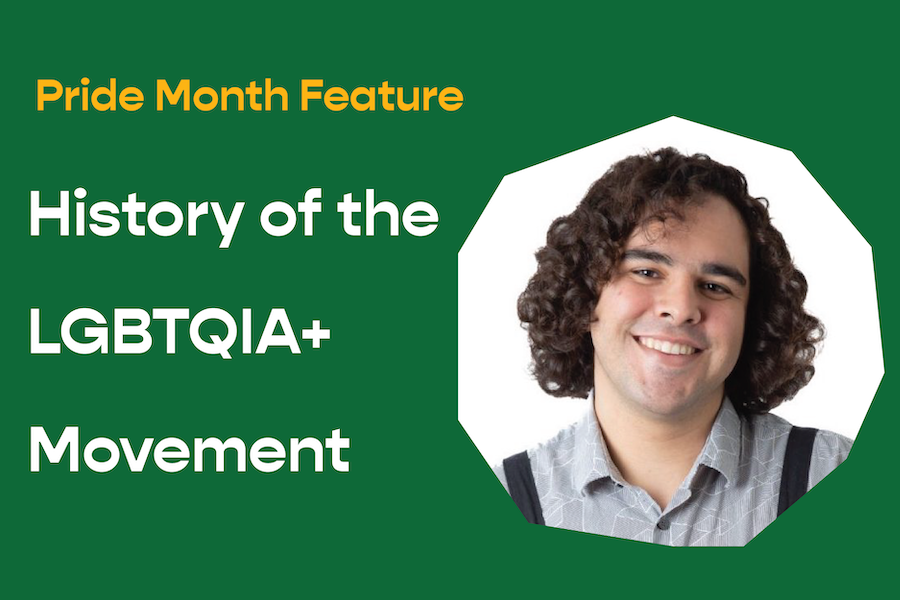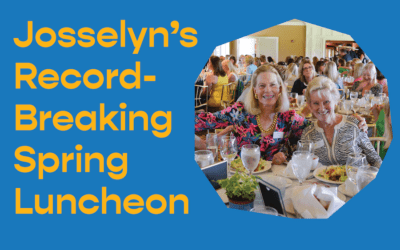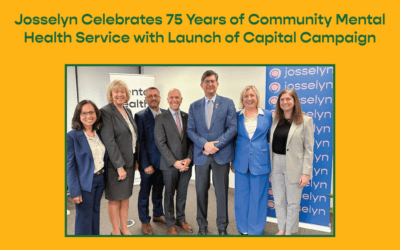Why does LGBTQIA+ history matter to mental health? Imagine if someone told you to feel a certain way, box you into a way of dressing, or behaving or loving in a way that wasn’t how you felt. What if you were expected to marry someone to whom you were not attracted, just because it was the way society expected you to be? History teaches us lessons from the past and helps society more forward. By learning about LGBTQIA+ history, we can create a society that is more accepting, less judgmental, more tolerant of feelings that are different than our own. It teaches us to treat people with dignity and respect. And, that’s why it matters to mental health.
– Susan Resko, Josselyn CEO & President
By Dani Herrera Dent, Ed.S.
June 15, 2023
Pride Month, a moment in time to commemorate our fallen siblings; a month to celebrate what makes us individuals; a month to listen, learn, cry, smile, and a million other things.
In the early morning of June 28, 1969, police raided the Stonewall Inn, a haven bar for the queer community in New York. It would be wrong for me to say that this was the beginning, as we’ve been able to see a myriad of other cultures around the world that have shown beautiful and ample representation of queer identities.

What I will say is that it started a radical movement for the queer community. Two beautiful strong women stand out: Sylvia Rivera and Marsha P. Johnson. These two transgender activists helped push the movement with their work, known for spearheading the Stonewall riots and eventually founding The Transvestite Action Revolutionaries or STAR, a group committed to helping homeless trans youth in New York.
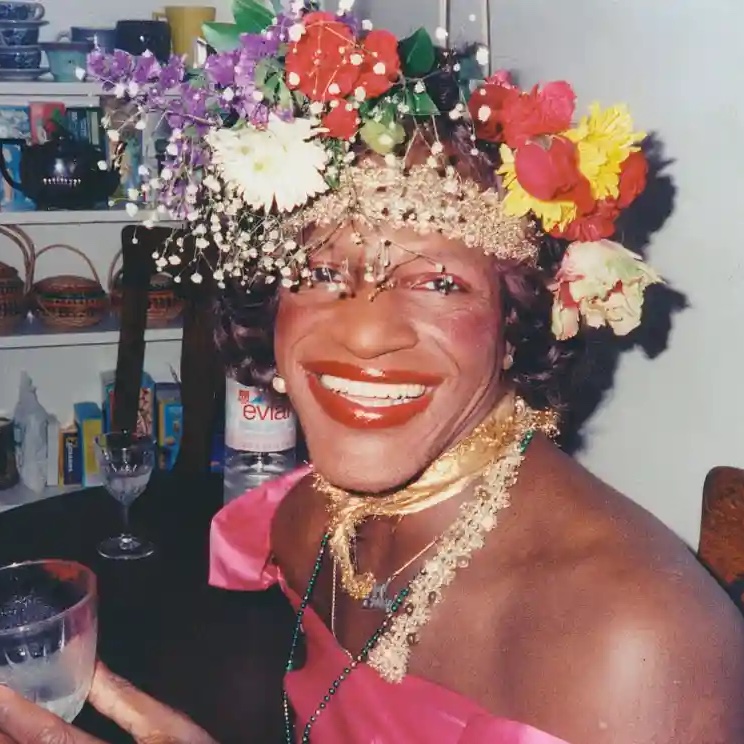
Photograph: Netflix
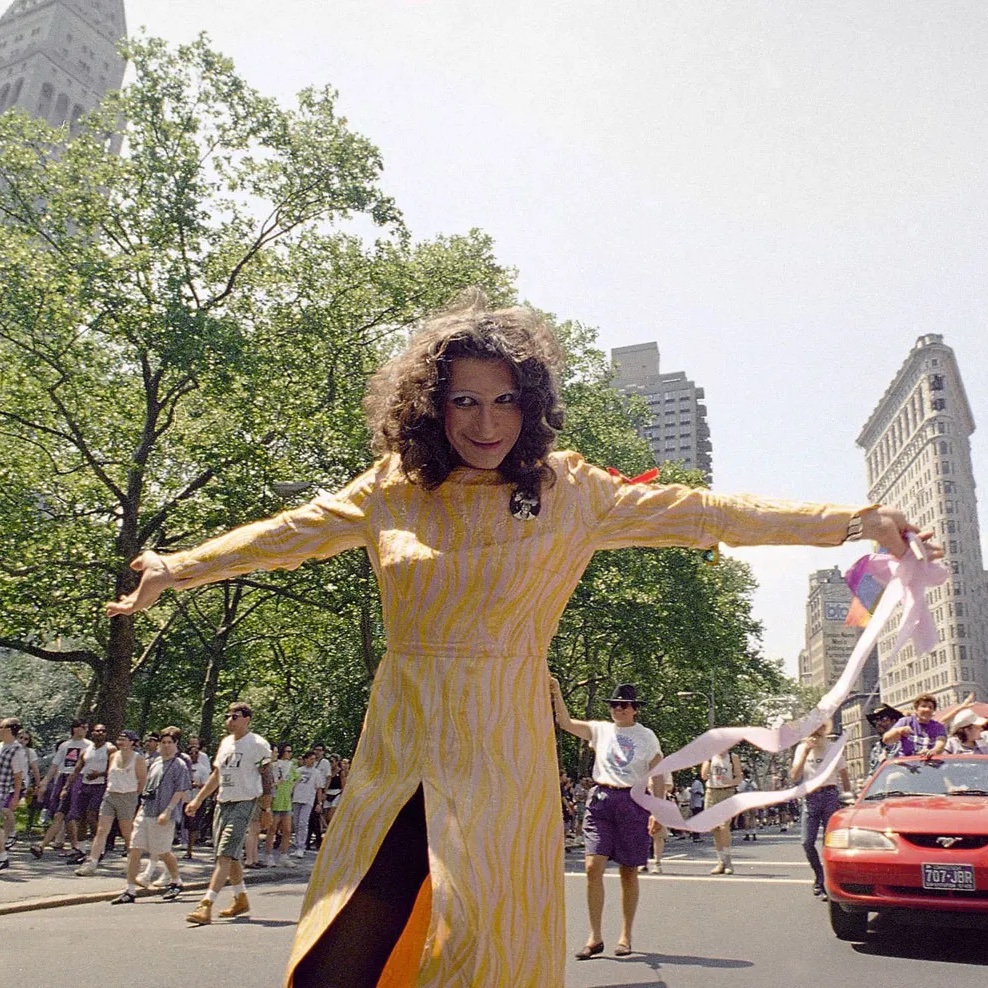
Photograph: Justin Sutcliffe—AP/Shutterstock.com
Why does this matter to me? Throughout my childhood and early adulthood, identity has been a huge part of my life. I’ve always tried to put myself in a box that would feel appropriate. This is exactly why queer history is so important to me. Trans activists from our history, my trans siblings that I spend community with day to day, and my own mind realizing that a “box” is never what I was looking for.
During Pride Month, and throughout the year, I strive to live the way my community has taught me to live; to dress however I want, to be curious and open to new ideas I don’t yet understand, to not put myself in a box, but rather give myself a name and decide what that means for me on my own terms.
As we look at these photos of Marsha P. Johnson and Sylvia Rivera smiling, we know that our queer elders are looking down on us, smiling as we find ourselves dancing under the rainbow.
It may be better said in the words of a quote I heard some time ago: “You are gay history.” To all the queer and trans kids growing up, you are gay history, you are part of a beautiful movement. Know that as you grow and you learn and you make mistakes, you have a long history of queerness to sit with and be in community with.
Let us never forget this lesson that queer history has given us. That if we hold space for our community and if we engage with those who will help us reach our light, we can overcome. Above all, let’s take the time to connect with our roots, celebrate, protest, cry, love, and smile, just like our ancestors would have wanted.
Why does LGBTQIA+ history matter to mental health? Imagine if someone told you to feel a certain way, box you into a way of dressing, or behaving or loving in a way that wasn’t how you felt. What if you were expected to marry someone to whom you were not attracted, just because it was the way society expected you to be? History teaches us lessons from the past and helps society more forward. By learning about LGBTQIA+ history, we can create a society that is more accepting, less judgmental, more tolerant of feelings that are different than our own. It teaches us to treat people with dignity and respect. And, that’s why it matters to mental health.
– Susan Resko, Josselyn CEO & President
By Dani Herrera Dent, Ed.S.
June 15, 2023

Pride Month, a moment in time to commemorate our fallen siblings; a month to celebrate what makes us individuals; a month to listen, learn, cry, smile, and a million other things.
In the early morning of June 28, 1969, police raided the Stonewall Inn, a haven bar for the queer community in New York. It would be wrong for me to say that this was the beginning, as we’ve been able to see a myriad of other cultures around the world that have shown beautiful and ample representation of queer identities.
What I will say is that it started a radical movement for the queer community. Two beautiful strong women stand out: Sylvia Rivera and Marsha P. Johnson. These two transgender activists helped push the movement with their work, known for spearheading the Stonewall riots and eventually founding The Transvestite Action Revolutionaries or STAR, a group committed to helping homeless trans youth in New York.

Photograph: Netflix

Photograph: Justin Sutcliffe—AP/Shutterstock.com
Why does this matter to me? Throughout my childhood and early adulthood, identity has been a huge part of my life. I’ve always tried to put myself in a box that would feel appropriate. This is exactly why queer history is so important to me. Trans activists from our history, my trans siblings that I spend community with day to day, and my own mind realizing that a “box” is never what I was looking for.
During Pride Month, and throughout the year, I strive to live the way my community has taught me to live; to dress however I want, to be curious and open to new ideas I don’t yet understand, to not put myself in a box, but rather give myself a name and decide what that means for me on my own terms.
As we look at these photos of Marsha P. Johnson and Sylvia Rivera smiling, we know that our queer elders are looking down on us, smiling as we find ourselves dancing under the rainbow.
It may be better said in the words of a quote I heard some time ago: “You are gay history.” To all the queer and trans kids growing up, you are gay history, you are part of a beautiful movement. Know that as you grow and you learn and you make mistakes, you have a long history of queerness to sit with and be in community with.
Let us never forget this lesson that queer history has given us. That if we hold space for our community and if we engage with those who will help us reach our light, we can overcome. Above all, let’s take the time to connect with our roots, celebrate, protest, cry, love, and smile, just like our ancestors would have wanted.
